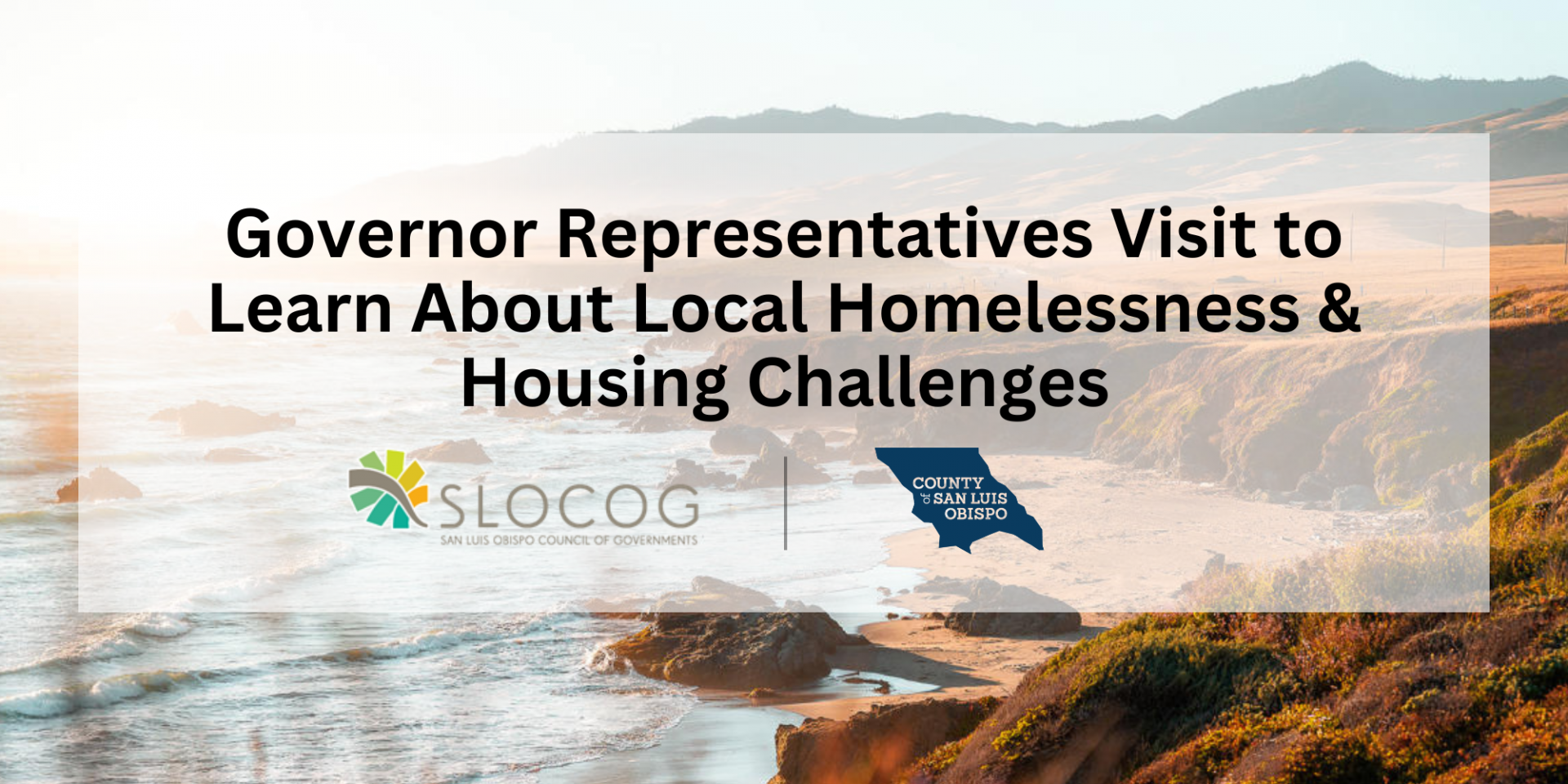
Representatives from Governor Newsom's Office visited San Luis Obispo County to discuss local homelessness challenges, explore community investments, and tour homeless service facilities. The visit highlighted collaboration between State, County, and community partners to create effective solutions.
San Luis Obispo, CA—The San Luis Obispo Council of Governments and the County of San Luis Obispo hosted Governor Gavin Newsom's Office on August 26, 2024. This visit was part of the State’s ongoing efforts to understand homelessness and housing challenges and to see how over $27 billion in community investments are utilized at the local level.
“We are pleased to see the work underway in San Luis Obispo County to support and care for their community,” said California Governor Gavin Newsom. “We look forward to continued collaboration as we work together to ensure that every Californian has a place to call home, and the services they need to thrive.”
"This visit underscores the importance of collaboration at every level of government and with our community partners to make meaningful progress in addressing the complex challenges of homelessness in San Luis Obispo County,” said Linda Belch, Department of Social Services Deputy Director for the Adult and Homeless Services Branch. “We are committed to finding sustainable solutions that meet the needs of our most vulnerable residents."
“SLOCOG was pleased to convene and acknowledge the multiagency efforts that have gone toward homeless services in SLO County,” said SLOCOG Executive Director Pete Rodgers. “This visit from the Governor's Office was a chance to pause, take a moment to acknowledge the County and partner agency accomplishments, and to express our needs for the future.”
The visit included roundtable meetings with local government officials, homeless service providers, and housing partners with the discussions focusing on the unique challenges faced by San Luis Obispo County, including high housing costs, local sentiment towards homelessness initiatives, and the sustainability of critical programs. Representatives from ten agencies partook in the conversations, including 5Cities Homeless Coalition, Community Action Partnership of San Luis Obispo (CAPSLO), El Camino Homeless Organization, Family Care Network, Lumina Alliance, Transitions-Mental Health Association, People's Self-Help Housing, Housing Authority of San Luis Obispo, Paso Robles Housing Authority, and San Luis Obispo County Housing Trust Fund. Government officials from the County’s Department of Social Services, Department of Planning and Building, Health Agency, and Behavioral Health Department and the Cities of San Luis Obispo and Paso Robles also joined for portions of the visit.
During the roundtable meetings, there were discussions on California Proposition 1, the Behavioral Health Services Act, which aims to increase the State's capacity to provide behavioral health care and housing for vulnerable populations living with significant mental health needs. The County of San Luis Obispo also shared their experience implementing Senate Bill 43, a new state law that broadens the definition of disability and expands access to medical care and services through conservatorship. The State representatives provided valuable information on current and future State programs designed to support all Californians such as CalKIDS, a program that offers free college funds for all registered California students.
Following the roundtable discussions, the State officials toured several homeless service facilities in San Luis Obispo County. The tour began at the Paso Robles Homekey Project, which was funded by $12.9 million in State Homekey funds in 2020. The facility includes 60 permanent supportive housing units operated by Housing Authority of San Luis Obispo, and ECHO’s Paso Robles campus with 70 emergency shelter beds and on-site services like community meals and shower programs. The group then visited CAPSLO’s 40 Prado Homeless Services Center in San Luis Obispo, which provides emergency shelter for individuals and families, access center services, case management and outreach, a safe parking program, recuperative care beds, and an on-site Community Health Center. The day concluded in Grover Beach with a visit to Cabins for Change, the first interim supportive housing community in the county and where 5Cities Homeless Coalition offers 20 private cabins and housing-focused case management to program participants.
This visit underscores the region’s unifying commitment to address homelessness and housing challenges with a collaborative approach, leveraging both State and local resources and partnerships to create sustainable solutions for the community.


